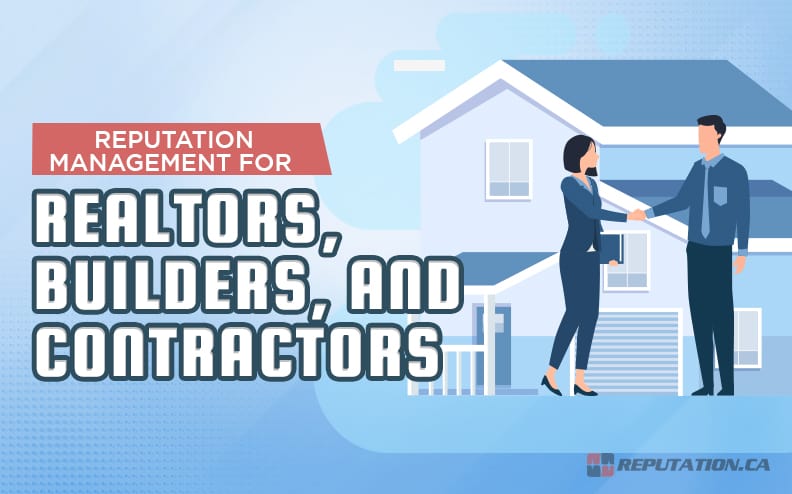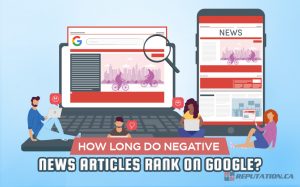Everyone must maintain a healthy public image to succeed in their field, regardless of what that field is. The reputation we cultivate is critical to our success and place in society. Without our image, we cannot draw in customers, employers, friends, and significant others. While everyone needs to cultivate their reputation carefully, businesses are more likely to suffer when their public image is tarnished.
When a company or industry allows its reputation to falter, those who do can severely damage its ability to function and conduct business. Most customers and clients are less likely to employ the services of a business or professional if their public image is poor. This applies to any kind of professional service, including realtors, builders, and contractors who play significant roles in the manufacture of homes for people to use.
Unfortunately, each of these industries is subject to several weaknesses that could cause the reputation of each practitioner to plummet if they are not addressed. This makes reputation management a crucial element in the housing industry if these companies want to sell homes successfully.
What Do Realtors, Builders, and Contractors Do?
Realtors, builders, and contractors are all essential professionals in the housing industry who help produce, modify, and sell homes to the public. Each one plays a different role that connects to produce the homes we all know and love. While the modern economy is not conducive to buying a home, it remains an essential practice for people looking to start their lives independently from their parents.
Realtors, builders, and contractors are responsible for ensuring the supply meets the demand, even when the market is poor. The roles these professionals play in the housing industry might not be well known to the average citizen, though most are self-explanatory. Nevertheless, you might want to get a refresher on each professional’s work.
Builders are the ones who start the process of creating a home for people to purchase or rent. Builders are responsible for the physical construction of the initial building, starting with the foundation and frame. “Builders” is a broad term designed to encompass several construction professionals who focus on specific parts of the fabrication process. Ultimately, the different construction teams work together to produce a suitable frame for the home. Once the builders have fulfilled their role, the contractors take over.

Contractors focus on housing construction that takes place after the frame is complete. They put up the drywall, establish the plumbing, wire the electricity, and usually conduct their work during or after the builders construct the base for the house. Contractors are among the housing professionals whose role remains valuable after the home is finished.
People can hire contractors to make renovations or repairs to the home after it is complete. These renovations can range from unimportant to crucial to the house’s integrity. Contractors often get hired to renovate houses when the original owners resell the house in favor of another. Once the contractors’ work is complete, it is time to call in the realtors.
Realtors are not involved in the construction of the house but are responsible for selling the finished product. Realtors are experiencing the greatest strain in today’s economy thanks to the increasing prices of homes. Nevertheless, realtors remain an important part of the housing industry despite not being responsible for construction. That said, realtors share a common issue with builders and contractors: reputation is crucial to their success.
Beware Negative Reviews
One of the main threats to the reputation and credibility of housing professionals, regardless of the type, is negative reviews about the quality of service. Reviews are one of the most important and simultaneously dangerous tools customers and clients possess. Reviews provide potential customers and clients insight into the quality of service they can expect from a particular company. The same principle applies to realtors, builders, and contractors since they all play a pivotal role in one of the most significant investments we make in life. Therefore, people want to know that the professionals they use for this investment are trustworthy.
Once upon a time, reviews were limited to business journals, articles, and other physical print or word-of-mouth conversations. Nowadays, the internet has made accessing reviews an instantaneous process that the entire population can employ. While hiring housing professionals outside your immediate area will not help, locals will use the reviews to determine if the housing professionals are reliable. High reviews indicate a housing professional likely provides quality services, while low reviews would prove the opposite.
When the aggregate reviews fall too low, usually denoted by a score of stars out of a 5-star total, customers will likely turn away from the company. Therefore, managing the reviews your firm receives is important to prevent false or negative reviews from harming your business.

The types of reviews that can impact the reputations of housing professionals include:
- Realtors: Realtors usually receive poor reviews for poor customer service, bad attitude, or deceptive sales pitches.
- Builders: Builders usually receive poor reviews for constructs that do not meet safety standards or use of poor-quality materials.
- Contractors: Contractors usually receive poor reviews for the same reasons as builders.
Review management is critical to reputation management for these services since letting bad reviews fester will prevent new clients from retaining your services. Fortunately, the idea that reviews are final and cannot be addressed is a misconception that will hold you back and destroy your image. It is within your power to respond to reviews and address the concerns of clients and customers to rectify the issues they might have with your services.
Addressing negative reviews is a viable tool for reputation management, but you must proceed with caution. There is a right way to address reviews and counter the reputational damage the review produces. Addressing a review with hostility will produce more reputational damage than fixes, which is why deference is important when addressing customer concerns.
Lawsuits Become Public
The construction or sale of a home that is not up to code can lead the inhabitants to suffer serious injury if a part of the house is unstable and generates a hazard. Usually, homes are inspected before they are sold to minimize this risk, but people can hide a flaw. Sometimes the builders fail to construct the house with the necessary supports, or a realtor sells a house with dangerous flaws and does not inform the buyer ahead of time.
Sometimes, contractors do a bad job and damage what the client hired them to modify, rendering it inoperable. Regardless of the issue, the inhabitants of a home can be seriously harmed by a home that was not constructed properly or was sold under false pretenses. When an injury occurs because of these issues, the inhabitant will usually respond with legal action against the responsible party.

Lawsuits, especially civil lawsuits with serious injuries, become extremely public and out a company’s misconduct to the general public. This means building a dangerously flawed house or selling one with a known hazard will almost certainly become a matter of public record. Civil lawsuits are common in modern America, and victims are not hesitant to exercise their rights to seek legal retribution. Aside from the settlement you might have to pay the victim over the injury they sustained, your reputation will take a serious blow. When a company or firm is sued over negligence, it causes potential clients to reconsider employing their services out of concern for their safety.
Repairing your reputation after a lawsuit is the most difficult thing a person or company can do since legal proceedings are permanently attributed to the defendant. Even when someone is found innocent in a criminal trial, the false accusation follows them for the rest of their life. It is possible to cushion the blow the lawsuit causes by taking preemptive measures, but this is not guaranteed to keep your reputation intact. To repair your reputation after a lawsuit, you must commit to making amends and conducting business responsibly. Unfortunately, this long-term effort might fail since the loss of customers can cause your firm to fail before it recovers.
Ultimately, having a well-established legal defense and launching an intense public relations campaign is the best bet for countering the consequences of a lawsuit. Otherwise, your reputation will plummet, and your firm will never recover from the public outcry.
Wikipedia Can Be Weaponized
Information is easier to acquire now than it was 50 years ago due to the rise of information technology and wireless internet connections. Since these inventions, information websites like Wikipedia have become more common, though Wikipedia remains the most widely used. Unfortunately, Wikipedia has a fatal flaw that can severely damage the reputation of an article’s subject.
Anyone with access to a computer or smart device can edit a Wikipedia article as they please, including adding harmful information. While Wikipedia does have administrators, they are too few in number to effectively police the entire website and prevent the spread of misinformation. Once a business gets large enough, someone will inevitably draft a Wikipedia page to provide background information to others. As a result, your firm might have a Wikipedia article about it of which you have no knowledge.

To protect your reputation from harmful Wikipedia edits, any company should first check to see what the article says. If no article exists, it might be best to have someone create it so you can dictate what the page says. It is more important to monitor your Wikipedia page for changes that might harm your reputation or spread misinformation. It is possible to set alerts that inform you when your Wikipedia page is edited somehow, but regular checkups on the article can be more effective. Managing Wikipedia pages can be a tedious endeavor, but well worth the effort considering the damage an altered Wikipedia article can cause.
Wikipedia traffic peaks in the billions in an average month, meaning billions of people on the planet might read the article about your firm. Combining this statistic with how quickly information travels across online communication platforms, the entire planet could hear about misinformation in hours. The longer misinformation is available, the more people will accept it as fact, which means correcting misinformation on your Wikipedia page is critical. Otherwise, lies could destroy your reputation before you have an opportunity to correct the problem.
Nevertheless, managing these different facets of your reputation can be complicated without a team dedicated to your reputation. Unfortunately, that might not be something you can create in-house.
Take Your Reputation Back!
Regardless of your industry, your reputation is an invaluable asset that you must cultivate carefully. Otherwise, you risk losing your entire business as the opinions of your potential customers turn sour. Professionals in the housing industry are no less susceptible to reputational damage than politicians, mobile service providers, or any other type of professional. This means taking responsibility for the various details of your public image and ensuring that you keep it in a healthy position.
Wikipedia articles, lawsuits, and reviews are only a few ways your reputation can be tarnished, making maintenance a full-time job. Unfortunately, keeping an in-house reputation management team might not be possible for certain firms.

We at Reputation know that managing your public image is difficult and that you might need some assistance in accomplishing the task. We offer several services designed to minimize reputational damage and repair the damage that has already been done. Among our services are review management, Wikipedia article monitoring, and other basic services designed to keep your reputation as pristine as possible. Allowing your reputation to falter will only end poorly, so we encourage you to visit our website and take your reputation back!
Do you have any questions or concerns about our reputation management services? Or is there anything we mentioned in this article that you’d like additional clarification on? If so, please feel free to contact us at any time! We’d be more than happy to answer your questions, explain what our services entail in further detail, and clear up any concerns you may have.











